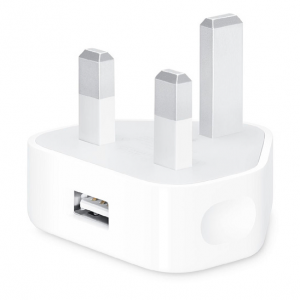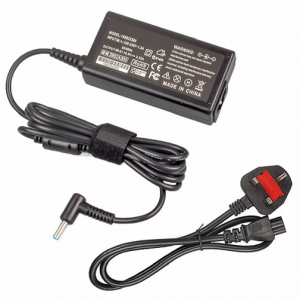Chargers
 |
 |
| Plug-type electrical charger | Laptop electrical charger |
The CCPC is responsible for making sure that a wide range of non-food consumer products sold in Ireland meet the requirements of specific safety regulations and that includes electrical chargers for electronic devices such as mobile phones, tablets and laptops.
It is important to buy quality electrical chargers that are safe and comply with the European Union (Low Voltage Electrical Equipment) Regulations 2016 (the Regulations).
Unsafe electrical chargers and other electrical appliances have been the cause of almost one in five fatal fires in Ireland, according to the National Standards Authority of Ireland (NSAI), so it is vital to make sure that electrical chargers and similar devices you use in your home are safe. Dublin Fire Brigade have also issued warnings about chargers or unsafe use of electrical chargers.
Here are some points to look out for when you are buying electrical chargers and some tips on how to use them safely.
What is an electrical charger?
Electrical chargers are devices that are plugged in to a mains socket at the wall and they convert the mains current into a current which can recharge the battery in an electrical or electronic appliance or device.
Electrical chargers are also known as plug adapters, power adapters, USB chargers, wall chargers, plug chargers, plug transformers, AC/DC adapters, power supply adapters or a plug in power supply.
Tips for buying electrical chargers
| 1. | You should buy electrical chargers from a reputable retailer. |
| 2. | Check that the electrical charger has the CE mark. |
| 3. | Don’t buy a cheap electrical charger. Cheaper electrical chargers, poor quality chargers, chargers which are very light or where the USB port is upside down may not comply with the Regulations and there is a higher risk of electrocution, fire or damage to your device if you use these chargers. |
| 4. | Don’t buy an unbranded electrical charger. The registered company name, trademark and address of the manufacturer and the EU importer must appear on the charger, labelling, and/or packaging (English and/or Irish language only). |
| 5. | Watch out for labels where the manufacturer’s full contact details are not clear or not there at all. If any words on the label or packaging are spelled wrong, don’t buy it |
| 6. | All electrical chargers must be suitable for use in a standard three pin wall socket. If it has a two pin plug, it should not be sold to a consumer in Ireland so you should not buy it. |
| 7. | The electrical charger should come with instructions or a safety manual and appropriate safety warnings in clear, unbroken English and/or Irish. They should tell you how to use the charger safely, give basic electrical safety guidance and details of how to safely dispose of it. |
| 8. | Be wary of cheap electrical chargers that may be not be genuine, even if they appear to have the logo of a well-known brand. |
| 9. | Make sure that you buy an electrical charger which is compatible with your device. If you use an electrical charger which is not suitable for your device, it could damage it or pose a fire or explosion risk. |
Tips for using electrical chargers safely
| 1. | Always read and follow the information in the manufacturer’s instructions or safety manual. |
| 2. | If the electrical charger is difficult to plug in and does not go in to the wall socket easily, it may not be safe and could damage the safety mechanism in the wall socket. You should stop using it immediately and dispose of it safely. |
| 3. | Don’t leave devices charging overnight and always unplug the electrical charger when your device is fully charged. |
| 4. | You shouldn’t leave anything charging unattended as electrical chargers that are left plugged in can be a serious fire hazard. |
| 5. | Never charge a device on a flammable surface or material. Always make sure you charge on a hard non-flammable surface. Devices can become warm when charging and this can become a serious fire hazard if you leave your device charging on a flammable surface or covered by a duvet, pillow etc. |
| 6. | If the electrical charger is damaged, you should stop using it immediately and dispose of it safely. |
| 7. | Don’t overload wall sockets. It can be tempting to plug all your devices into one extension lead or a multi-plug adapter, however this can cause a serious fire hazard. You should never ‘daisy chain’ extension leads together and you should keep the number of devices plugged into a single socket to a minimum. Larger appliances such as heaters should always be plugged directly into a wall socket and should not share a socket with any other devices. |
If you come across an electrical charger that seems unsafe or if it doesn’t have a CE mark, don’t buy it. Instead, contact us with the details of the product and where you saw it. You can contact us through our website or call us on 01 402 5555.


